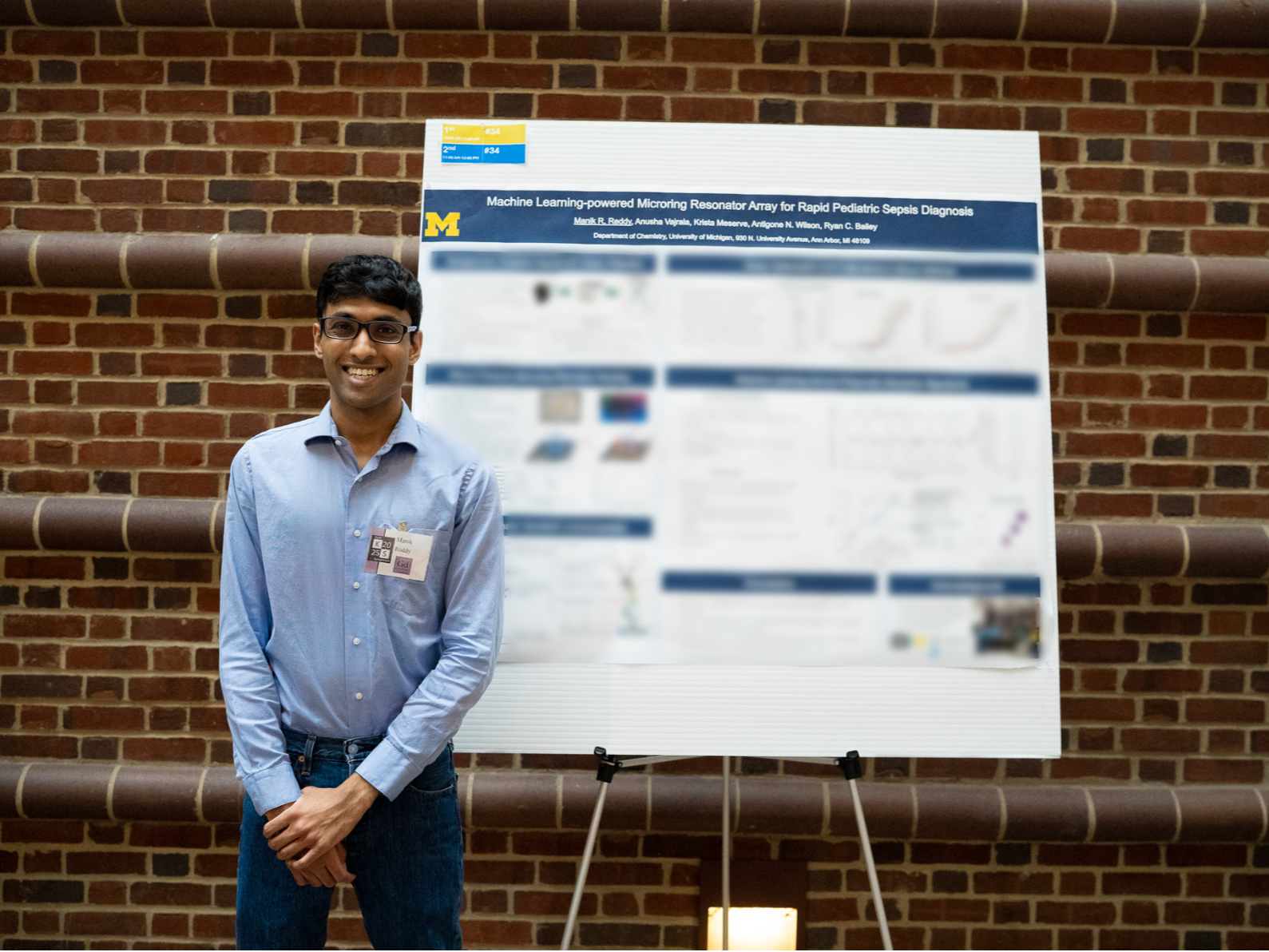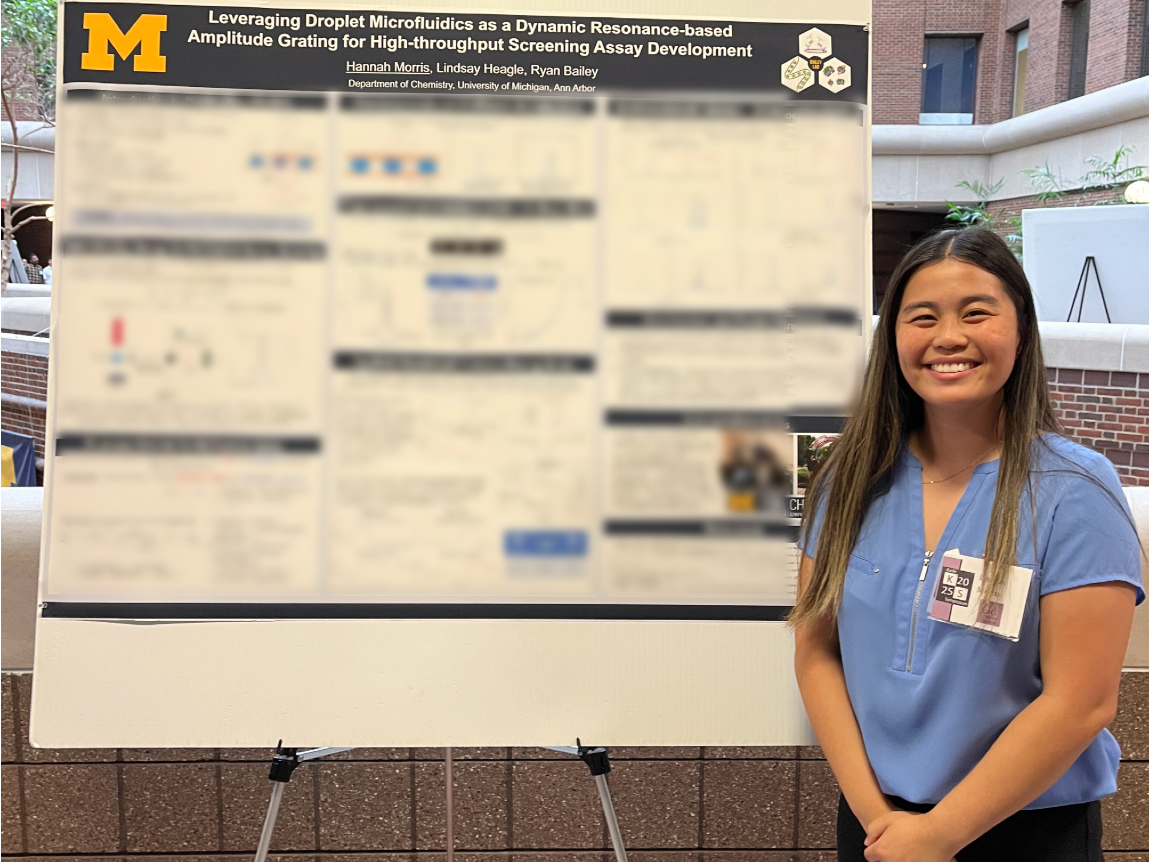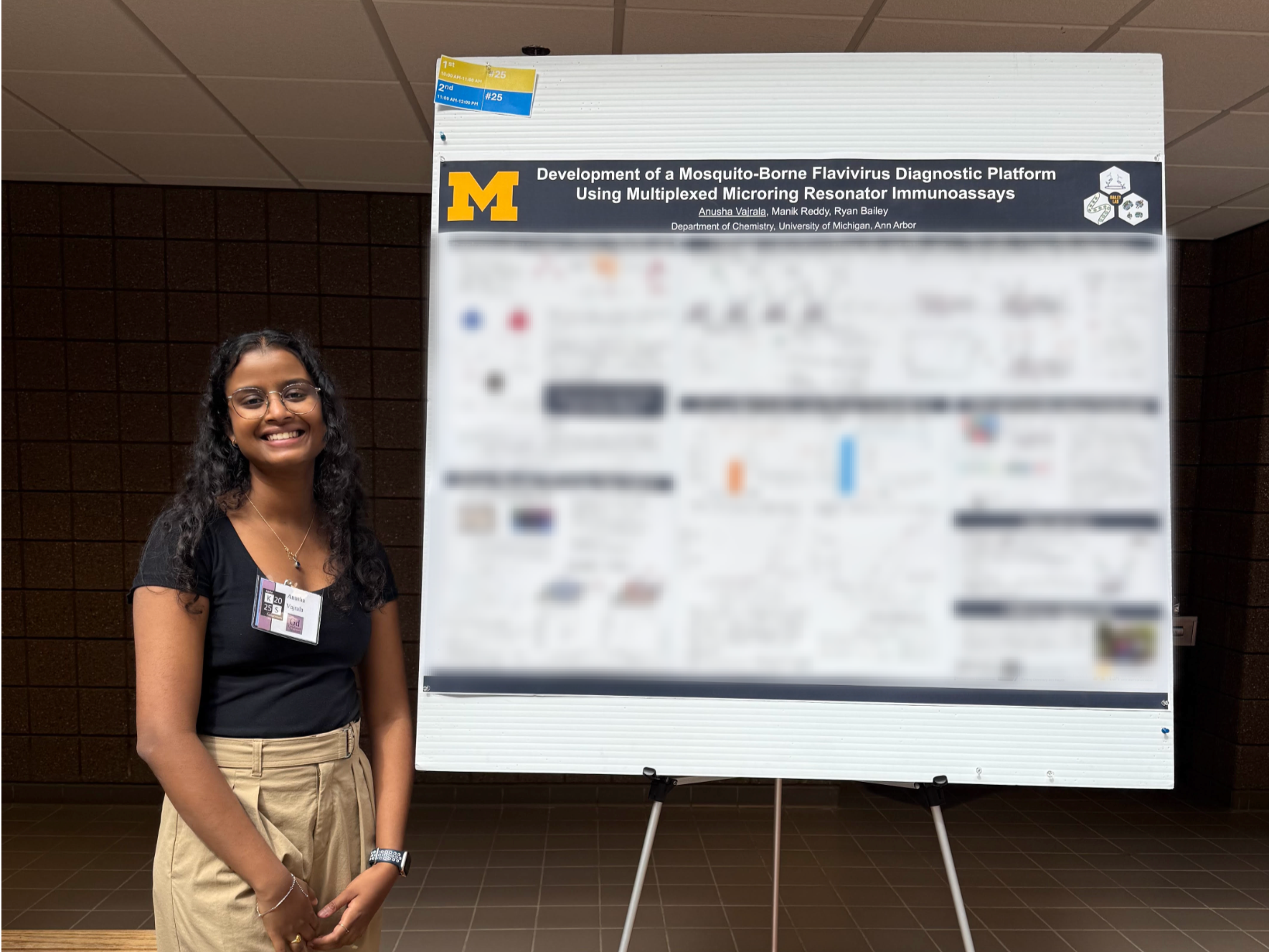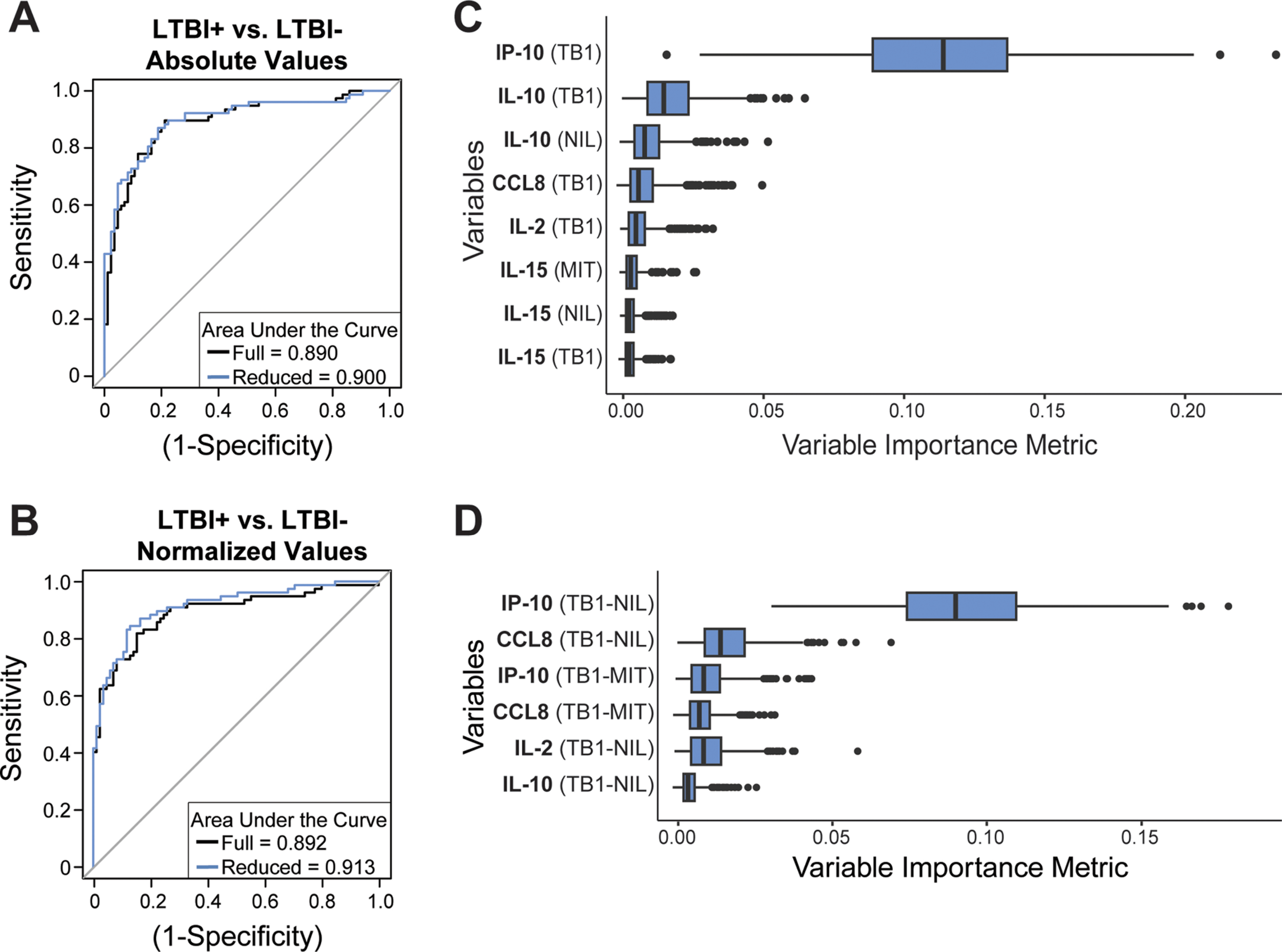The annual Alumni Networking at UMich (Alum|NUM) and Undergraduate Research and Networking at UMich (URAN|UM) event fosters connections between undergraduate researchers and alumni in academia and industry through scientific research presentations. Rising fourth-year student, Ayush Chitrakar, served as Co-President for the event, while rising fourth-year student, Lindsay Heagle, and third-year students, Hannah Morris and Anusha Vajrala, contributed as members of the organizing committee.
Bailey Lab members attended the Alum|NUM and URAN|UM event and presented at the Isabella & Jerome Karle Symposium last week! Invited speakers spanned both industry and academia, with Dr. Favid Fenn (PPG) giving the plenary lecture and Dr. Erin Baker (UNC Chapel Hill) giving the keynote lecture. Additional events included visiting faculty and industry-led panels, professional development activities, graduate student presentations, and poster sessions.
Representing the Bailey Lab at the Karle Symposium were rising fourth-year student, Manik Reddy, and rising third-year students, Hannah Morris and Anusha Vajrala. Rising fourth-year, Lindsay Heagle, and rising third-years, Camila Gonzalez, Hannah Morris, and Anusha Vajrala, were on the organizing committee for this symposium.
Thank you to all of the student organizers, sponsors, visiting faculty and industry professionals for making this a successful event. We look forward to participating in the Karle Symposium next year!














